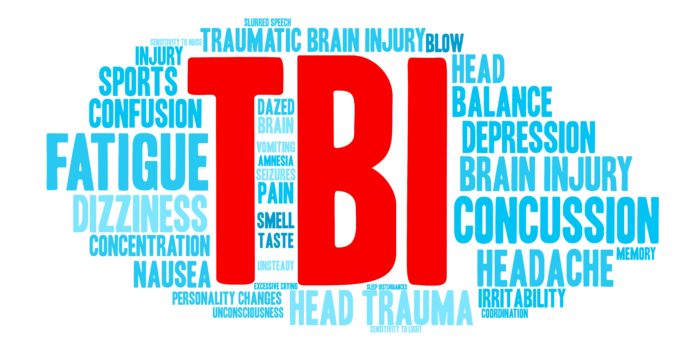
Traumatic brain injuries–or TBI–can range from mild to moderate to severe. Mild and moderate TBIs typically have minimal long-term effects and may allow the patient to make a full recovery.
Severe cases in which the brain sustains serious damage can lead to issues with vision, hearing, speech, and emotions, and can have socio-emotional and cognitive effects as well. Depending on the severity of the injuries, these symptoms may be long-term.
Ultimately, a doctor may be able to help you determine if you are suffering from the long-term effects of a traumatic brain injury.
Causes and Symptoms
According to the Centers for Disease Control and Prevention (CDC), traumatic brain injuries are a serious public health issue. Common causes of TBI includes slip and falls and motor vehicle accidents. The CDC claims that over 2.8 million TBI cases were reported in the U.S. in 2014.
Depending on how and where the brain sustains damage, an injury victim can exhibit a wide range of long-term effects after a traumatic brain injury. Common telltale signs of a TBI include:
- A short-term loss of consciousness
- A persistent headache
- Nausea
- Vomiting
- Seizures or uncontrollable shaking
- Confusion or disorientation
- Changes in behavior
- Trouble speaking coherently
If you were hurt in an accident and believe you are experiencing TBI symptoms, see a doctor for an evaluation.
Long-Term Complications
According to the Mayo Clinic, TBI may express in any one or more of the following ways. Symptom may be related to physical, social, communication, cognitive, or sensory issues:
Physical Issues
The long-term physical effects of a TBI may include:
- Seizures
- A buildup of fluid in the brain or in the spaces within the brain, leading to higher pressure in the skull and swelling of the brain
- Headaches
- Vertigo
- Damage to blood vessels or infections, depending on how the head was impacted in the accident
Sensory Issues
Injury to the skull can lead to nerve damage that can lead to long-term sensory issues such as:
- Facial paralysis
- Loss of the sense of taste, smell, or vision
- Trouble swallowing
- Dizziness and/or trouble with maintaining balance
- Tinnitus, or a persistent ringing in the ears
- Hearing loss
Cognitive and Intellectual Issues
Victims of a severe TBI may experience a long-term change in their ability to think. This can manifest in different ways, but may affect:
- Ability to remember things
- Ability to learn new things
- Ability to reason
- Judgment
- Concentration, attention, or focus
- Problem-solving and organization skills
- Ability to multitask
- Ability to plan or make decisions
Communication Issues
A traumatic brain injury’s long-term effects may include issues with speech, language, and communication. These health issues can lead to frustration, social conflict, and misunderstandings, especially with those with whom the victim regularly interacts, such as friends, family members, and care providers.
Issues with communication may manifest as:
- Trouble thinking clearly or expressing thoughts coherently
- Difficulty understanding others
- Difficulty recognizing others
- Difficulty speaking
- Confusion or an inability to process thoughts or concepts
- Inability to follow along with a conversation
Emotional Issues
The long-term effects of a TBI can also include serious emotional issues such as:
- Depression or anxiety
- Sudden changes in mood
- Feeling agitated
- Anger or aggressive behavior
- Difficulty sleeping
Degenerative Brain Diseases
According to the Mayo Clinic, repeated TBIs may increase an individual’s risk of developing various degenerative brain diseases. These include Alzheimer’s, Parkinson’s, and some forms of dementia.
Seeking Legal Assistance
If you or a loved one suffered a TBI or have any of the signs or symptoms of a TBI as discussed above, Friedman & Simon, L.L.P. will help you with your case.
Depending on how your injuries or health issues were caused, we will pursue a personal injury claim against any of the at-fault parties responsible for your injuries. As part of this process, we will:
- Keep you updated on your case
- Identify the liable parties
- Communicate with all parties for you
- Gather evidence of their liability
- Determine a value for your case
We will provide you with these services, and more, on a contingency-fee basis, where you only pay our attorney fees if and when you recover compensation in a settlement offer or court award.
For a free consultation on your TBI case with a member of our team, please call us today at (516) 932-0400. Our multilingual staff assists callers in Spanish, Greek, Bengali, Tamil, and Kannada.